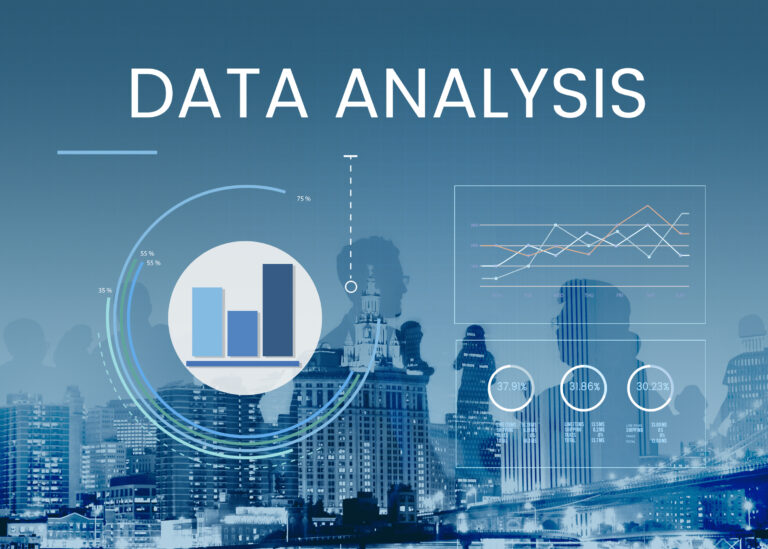Applications of data analytics are transforming industries, enabling companies to make smarter, faster, and more profitable decisions. Whether it’s manufacturing, healthcare, e-commerce, or banking, businesses are increasingly leveraging data to predict trends, understand consumer behavior, and streamline operations. In this context, data analytics has emerged as a game-changer across sectors. Therefore, understanding its fundamentals and scope is crucial for any organization aiming to stay competitive.
In this blog, we will explore what data analytics is, why it is important, the different types of data analytics, and most importantly, the major applications of data analytics across various industries.
What is Data Analytics?
Data Analytics is the systematic computational analysis of data or statistics. It deals with examining raw data to uncover patterns, draw conclusions, and support decision-making. To begin with, the process includes collecting, cleaning, and modelling data to discover useful information and guide business strategies.
Furthermore, organizations use various tools and technologies for data analytics, like Python, R, SQL, Tableau, and machine learning algorithms— these skills that are often covered in our artificial intelligence course in Kerala.
In simple terms, Data Analytics helps turn raw, unstructured data into actionable insights that drive efficiency and innovation.
Ultimately, it empowers businesses to make data-driven decisions that lead to measurable outcomes.
What is the Importance of Data Analytics?
The importance of Data Analytics is highly relevant in today’s competitive market. In order to stay ahead, businesses must understand market dynamics, consumer preferences, and operational inefficiencies. Therefore, Data Analytics has become a critical tool for driving success. Here are several key reasons why it is crucial:
1. Better Decision-Making: With the support of data-backed insights, businesses can make informed decisions that lead to higher success rates and minimized risks. As a result, organizations can avoid costly mistakes and stay strategically aligned.
2. Personalized Customer Experiences: By analyzing customer data, companies can tailor their products, services, and marketing campaigns to meet individual customer needs. Consequently, this enhances customer satisfaction and brand loyalty.
3. Operational Efficiency: Data Analytics helps identify bottlenecks, inefficiencies, and areas where costs can be reduced. In turn, this leads to improved productivity and optimized workflows.
4. Competitive Advantage: Companies that embrace Data Analytics consistently outperform those relying solely on intuition or outdated analysis methods. Thus, data-driven strategies provide a measurable edge in a crowded marketplace.
5. Forecasting Trends: Predictive analytics enables businesses to anticipate future market shifts and consumer behaviors. This way, they can proactively adapt and maintain relevance in a rapidly changing environment.
Types of Data Analytics
Knowing the different types of Data Analytics is essential, as it helps organizations choose the right approach based on their specific goals. Broadly speaking, the four main types of Data Analytics are:
1. Descriptive Analytics: Answers “What happened?” by summarizing past data. As a result, businesses gain a clear view of historical performance.
2. Diagnostic Analytics: Explains “Why did it happen?” by investigating the causes of past outcomes. In other words, it digs deeper into data to identify patterns and correlations.
3. Predictive Analytics: Predicts “What could happen?” using statistical models and forecasting techniques. Consequently, it enables proactive decision-making.
4. Prescriptive Analytics: Recommends “What should we do?” by suggesting actions based on data-driven insights. Therefore, it guides organizations toward optimal strategies.
Together, these types of data analytics form the backbone of the numerous applications of data analytics observed across industries.
Applications of Data Analytics
Data Analytics applications are revolutionizing every sector by providing deeper insights and smarter solutions. Let’s dive into some industry-specific data analytics applications.
Medical professionals and hospitals greatly benefit from the applications of data analytics in the healthcare sector. Today, they use data analytics to:
Predict disease outbreaks and patient readmission rates.
Additionally, personalized treatment plans are based on patient history and genetic information.
Moreover, enhances operational efficiency by managing hospital resources more effectively.
Furthermore, monitors real-time patient vitals and predicts potential health complications using wearable devices.
As a result, by using advanced analytics, healthcare providers improve patient outcomes, reduce costs, and optimize services.
E-commerce businesses thrive on data-driven strategies. The applications of data analytics in e-commerce are vast and impactful.
Firstly, customer behaviour analysis helps in understanding shopping habits, enabling businesses to personalise recommendations effectively.
Secondly, inventory management benefits from predictive analytics, which forecasts demand and ensures stock levels are managed efficiently.
In addition, pricing strategies leverage dynamic pricing models that adjust based on real-time market demand and competitor pricing.
Moreover, fraud detection systems utilise analytics to identify and mitigate fraudulent transactions as they happen.
As a result, e-commerce platforms can deliver seamless, personalized shopping experiences that not only boost sales but also strengthen customer loyalty.
Ultimately, the integration of data analytics is transforming how online retailers operate and grow in a competitive market.
The applications of data analytics have become indispensable in the finance and banking sectors. Today, financial institutions rely heavily on analytics to enhance their decision-making and operational efficiency.
To begin with, risk management is greatly improved through the analysis of credit scores, transaction histories, and market trends, allowing banks to assess and mitigate risks more accurately.
Furthermore, fraud detection is strengthened by monitoring unusual patterns, which helps detect and prevent fraudulent activities instantly.
In the same vein, customer segmentation enables banks to personalize financial products and services tailored to different customer groups.
Additionally, investment strategies are optimized by using predictive models that forecast stock market trends and support smarter portfolio management.
Consequently, banks and financial firms that harness data analytics become more agile, responsive, and secure in their operations.
Conclusion
In conclusion, the applications of data analytics are changing industries and offering companies a competitive edge in a rapidly evolving marketplace. Notably, the applications of data analytics are helping organizations make informed decisions, predict future trends, and optimize operations like never before. Consequently, businesses that use data analytics will lead the markets of tomorrow.
Furthermore, as data continues to grow exponentially, the need for skilled data professionals and advanced analytics tools becomes more critical. In the same vein, companies must invest in robust data infrastructure and foster a data-driven culture across all departments. By doing so, they can uncover hidden opportunities, enhance customer satisfaction, and drive sustainable growth.
Ultimately, embracing data analytics is no longer optional—rather, it is essential for long-term success in today’s digital economy.




